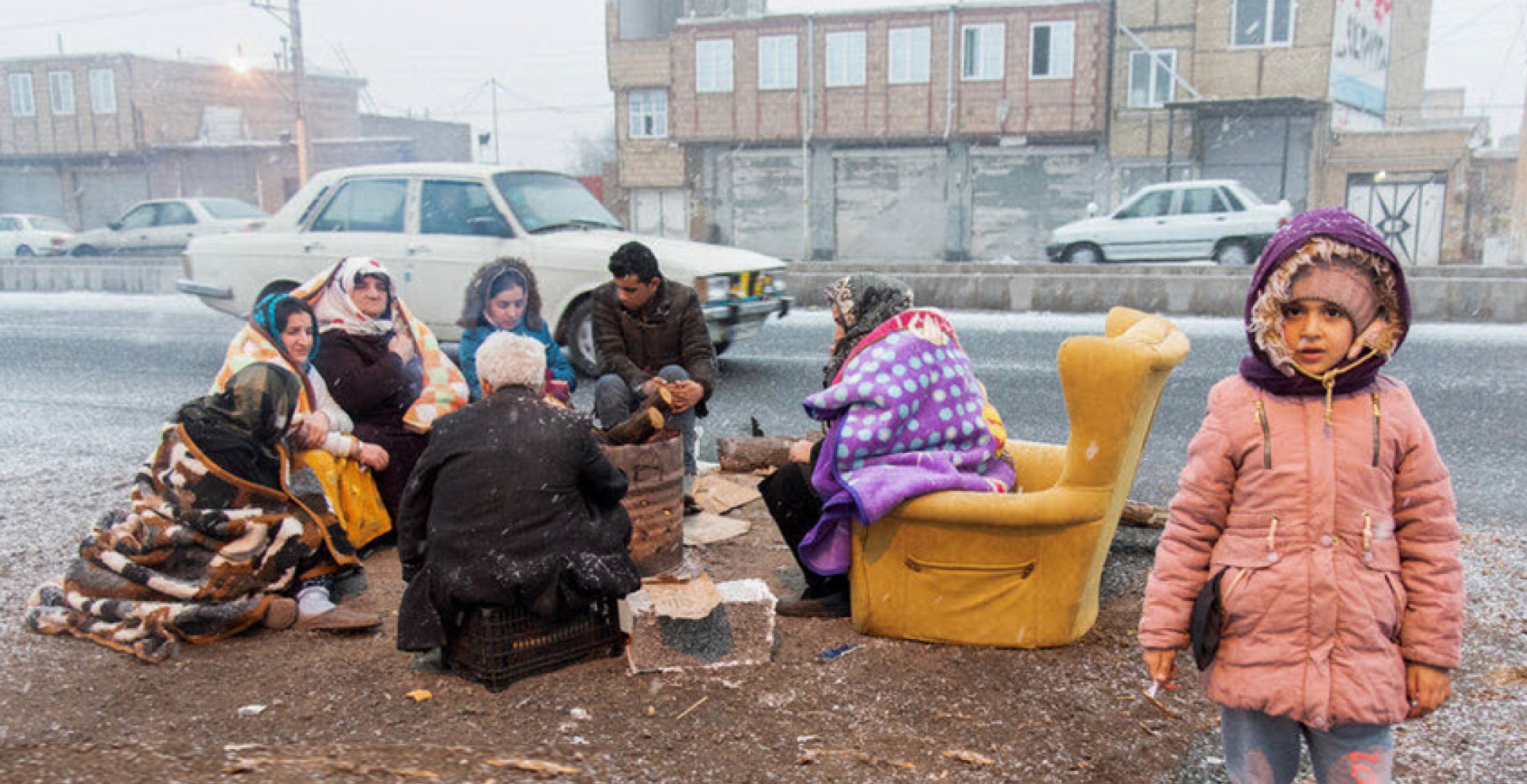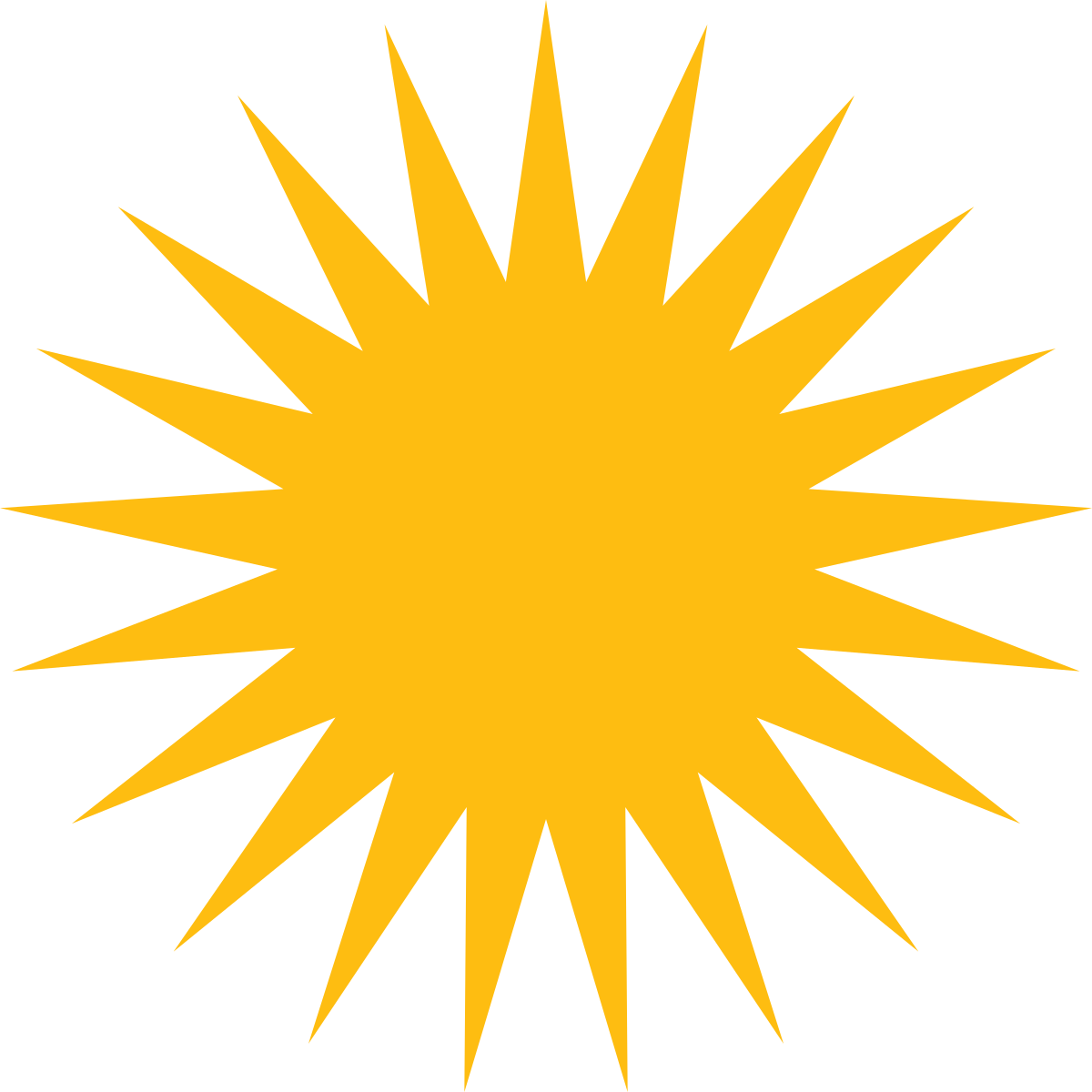The Earthquakes in Khoy: Iran Neglects the Kurds
By Gordyaen Benyamin Jermayi
In recent months, a number of devastating earthquakes have hit the four regions of Greater Kurdistan. From the wreckage of the massive February 6th earthquakes that ran across Bakur (Northern Kurdistan) and Rojava (Western Kurdistan), to smaller scale tremors reverberating across Bashur (Southern Kurdistan), to different medium scale earthquakes in Rojhilat (Eastern Kurdistan). Kurdistan is particularly susceptible to earthquakes, because of its geographic location. This includes overlapping the line where the Eurasian and Arabian Plates meet, which includes the Bitlis-Zagros fold and thrust belt, the East Anatolian Fault, and parts of the North Anatolian Fault. Kurdistan is also home to two major mountain ranges in the Middle East: the Zagros and Taurus Mountains.
Natural disasters are thus common throughout Kurdistan, in particular earthquakes, and floods from heavy snowfall, which can cause massive destruction and kill scores of people. However, what often determines the death count from these catastrophes, is the response of the four nation states that overlap and occupy Kurdistan (Turkey, Iran, Iraq, and Syria), and the levels at which they routinely neglect their Kurdish populations before and after a disaster occurs.
As a result of a century of occupation, exploitation, and disregard, Kurdistan’s infrastructure is underdeveloped and unfavorable. Almost all cities, towns, and villages have non-standard urban designs, and buildings are constructed without proper supervision or in accordance with the national building and construction regulations. Simultaneously, Kurds face extreme poverty throughout Kurdistan as a result of deep-rooted discrimination and oppression, which often leaves Kurdish civilians unable to afford proper building materials.
Due to the aforementioned factors, Kurdistan and the Kurdish population typically suffer greater levels of devastation and fatalities during earthquakes and their aftershocks. Additionally, since the occupying governments purposefully refuse to assist with renewal or restoration or allow equitable distribution of aid to occur following the natural disasters, the scars of an earthquake will persist in Kurdish areas for many years.
This article will focus specifically on the situation in the Eastern Kurdistan (northwest Iran) city of Khoy (Xoy), following the recent earthquake (a week prior to the larger one on February 6th) and how the Iranian regime deliberately mismanaged the recovery efforts to adversely affect the Kurds even further. One of the reasons is that a revolution is also simultaneously occurring throughout Iran, but rooted most firmly in Rojhilat under the Kurdish banner of “Jin, Jiyan, Azadî” (Women, Life, Freedom). As a result, the regime in Tehran is already committing kidnappings, murder, and widescale abuse throughout Kurdish areas, and this earthquake simply provided a more efficient means for them to carry out their subjugation.
The Khoy Earthquake
On January 28, 2023, at 21:44 local time, the city of Khoy – in occupied Eastern Kurdistan (northwest Iran) but the province Tehran officially calls ‘West Azerbaijan’ – was struck by an earthquake with a magnitude of 5.9. Khoy and its surrounding villages sustained the majority of the damage, though it was also felt in neighboring cities like Urmia, Tabriz, Maku, etc., as well as in nations like Armenia, Azerbaijan, Iran, and Northern Kurdistan (southeast Turkey). Three people lost their lives, over 1,200 were injured, and over 11,000 homes and other structures were damaged. The poisoning from carbon monoxide gas inside tents also claimed the lives of three more people and hospitalized over 100 others. Additionally, around six weeks later another earthquake with a magnitude of 5.2 struck the city on March 16, 2023, which thankfully did not result in casualties.
As a result of the earthquakes, tens of thousands of people have been made homeless and are now living in makeshift shelters and tents with few amenities. The Iranian government has responded to this natural disaster, as usual, in an ineffectual manner. As a result, residents of the surrounding cities, particularly Urmia and Tabriz, but also Sarpol Zahab (which was damaged by an earthquake in 2017), began to raise funds and gather supplies to aid and support the earthquake victims in Khoy.
Locals I spoke with claimed that the IRGC forces were preventing aid from reaching affected areas, particularly the Kurdish villages and regions. For instance, the villages of Hisar and Kuchk, where 70 and 50 Kurdish families live respectively, have yet to receive any aid due to the government’s neglect.
In some cases, the government forces also stole supplies from volunteers who had come to Khoy, while directly threatening many of them. In contrast, while the IRGC was preventing aid from reaching the Kurds, they were diverting aid primarily to Azeri-Turkish villages and neighborhoods. Showing that Tehran does not just decide the “losers” in their game of power, but they also dictate who the “winners” will be based on geopolitical considerations and publicity stunts aimed at their nation state neighbors (Turkey and Azerbaijan).
With regards to the two aforementioned Kurdish villages, over 30 homes in Kuchk and over 50 homes in Hisar were damaged beyond repair, according to activists on the ground. As for the city of Khoy and surrounding areas which sustained the most destruction as a result of the January 28th and March 16th earthquakes, Kurdish people predominately live in the villages to the west of the city, while Azeri-Turks predominate in the villages to the east. Predictably, some aid reaches the east, but is kept from reaching the Kurds to the west of Khoy.

“The earthquake was so awful that no one from the authorities came to help us. We are in dire need of tents. I cry. The situation here is terrible. For God’s sake, take care of us here. The situation is horrible. Give us tents. Everyone is in need. God knows we are stranded; please reach out to us. There is no news of the government attending to us. It is not clear where the officials are. Where did they sleep? Where did they go to meet? The representatives they sent are just numbers. Our situation is awful; we are in dire need, want tents, and are hungry here. Today, we went to the Governor’s office, and they say, ‘we don’t have tents.’ But last night, they reported on the news that two planes brought tents to Khoy. Unfortunately, none of the people you see here received any tents. Don’t let the earthquake kill the people, don’t let the cold kill the people.”
According to the information that is currently available, many villages have received no government assistance whatsoever, and as a result, the Kurdish residents of these villages have been severely impacted by the cold and a lack of fuel, food, and medicine. Residents have described situations where one tent would have three families inside, and only one plate of food for every six people. Some desperate families have moved to other villages and towns, such as Khoy and even Urmia, to stay at relatives’ homes or rent houses. Consequently, the rental prices have increased significantly in Khoy. Yet, the majority of displaced families already live in poverty and with the added burden of homelessness are struggling to pay steep rental prices. At the same time, the price of essential foods especially bread, rice, oil, and sugar, amongst other necessities have significantly increased in Khoy.
Predictably, the Iranian government discriminated against the Kurds in not only providing adequate aid and emergency services, but also in providing safe and temporary housing in the wake of this natural disaster. The Azeri-Turkish regions have, in contrast, received more support than the Kurdish villages, towns, and neighborhoods.
For instance, while the Kurds in villages like Pesek have been neglected and are living in camping tents donated by people from other cities or made of plastic sheets, the Azeri-Turks in the Badalabad neighborhood in the northern part of Khoy and the Pir Musa village northwest of Khoy, have received proper tents and additional aid from the Iranian Red Crescent.
Consequently, the people of Khoy protested and requested assistance after the Iranian government’s negligence and poor disaster management. However, the Iranian government responded with violence, which resulted in injuring local Kurds whose homes were already damaged. Rather than sending aid or equipment to remove rubble, Iran dispatched anti-riot forces to the area. Videos published on social media soon showed security forces using a water cannon to disperse people who had gathered in front of the regional administration building in Khoy to protest. Empathy appears to be a limited and expensive commodity that the Iranian regime is refusing to spend towards their Kurdish population, who they hold accountable for the ongoing nationwide protests.
Making matters worse, concerned relatives and humanitarian organizations aboard have also been directly prevented from providing aid. In essence, it is very difficult to send aid to Khoy from abroad because Iran is under international sanctions and has added an additional internal embargo on Eastern Kurdistan. Only a few nations have offered assistance, and Iran has mostly declined them. Nevertheless, a group of Kurdish activists in the diaspora and the Kurdish Red Crescent, also known as Heyva Sor, were able to provide some families with aid like tents, blankets, heating devices, baby formula, diapers, medicine, and other basic needs. Unfortunately, this aid is obviously not enough to support the devastated and traumatized families affected by the disaster.
For their part, the Iranian authorities have pledged to repair the damaged houses in 7-8 months and lend 200-350 million toman (4,500–7,500 USD) loans with 5% interest to the families whose houses are damaged. However, based on the previous disasters and the Iranian government’s corruption and mismanagement, these promises seem to be merely empty rhetoric. This is especially true for the Kurdish citizens, who are deliberately and systemically neglected from basic temporary aid. For instance, the locals whom I spoke with have little to no faith that they will receive the promised loans to repair their homes.
Lessons Learned
As previously discussed, natural disasters like earthquakes, and floods are largely beyond human control. However, in Kurdistan, the four states of Iran, Turkey, Iraq, and Syria use these natural disasters as a tool of oppression against the Kurds. The lack of appropriate and timely responses ensures that more deaths, suffering, injuries, and prolonged homelessness occur in the Kurdish regions than in other areas. For the 10+ million Kurds of Eastern Kurdistan (over 10% of Iran’s population), this is particularly true.
Such disasters demonstrate that authoritarian governments cannot be trusted to equitably provide aid in cases of natural disasters, and instead they often use the opportunity to systemically increase the violence, suffering, and pain on oppressed minorities. The international community has a legal and ethical obligation to enact practices and laws to ensure that governments provide adequate, timely, and equitable support to all affected communities.
In contrast, we have seen communities and every day ordinary citizens come together and create shelters, collect aid, provide emergency services, and local support. Where governments deliberately and systemically fail to provide assistance, the people have repeatedly proven to be the alternative. Perhaps the future of emergency response theory and practice can take this important factor into consideration in helping to save lives and reduce human suffering during natural disasters.
For why should we expect states that occupy and terrorize stateless people under normal circumstances, to suddenly grow a conscience when a natural disaster hits? Especially, as the disasters are basically a mirror that treats oppressed populations in a similar unforgiving way to how the regimes normally do. Analogously, groups like the Kurds in Iran should be seen as hostages, and a kidnapper does not become kind just because a storm is outside his dungeon where he is holding you captive. As the Kurds of Khoy spend another night shivering in the cold without shelter, this realization is self-evident.




Comments are closed.